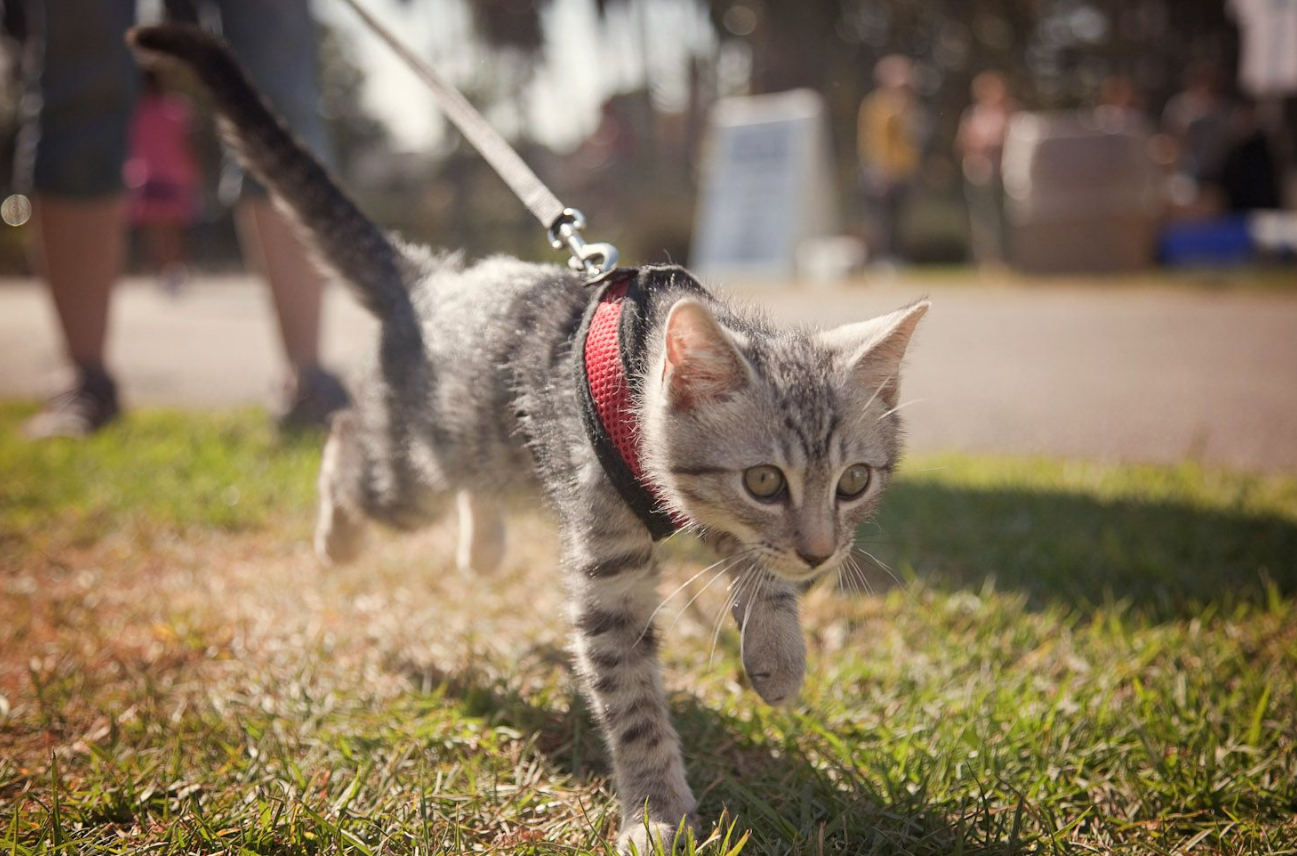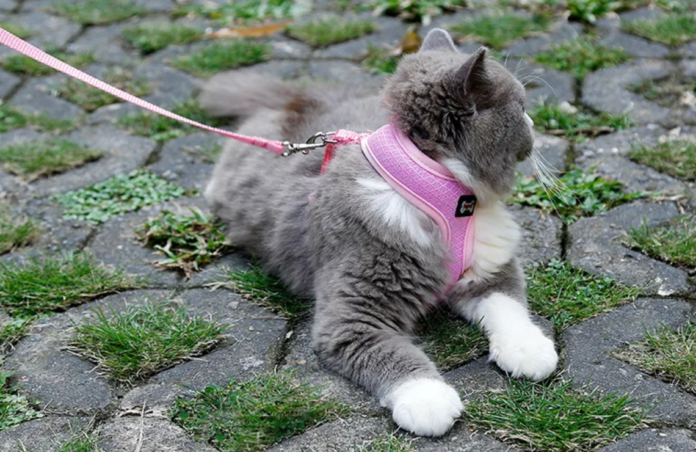Outdoor adventures aren’t just for dogs—cats can enjoy them too! Many indoor cats would love the chance to feel the sun on their fur and explore new surroundings. However, allowing your cat to roam freely outside comes with risks, including busy streets, other animals, and unpredictable dangers. Luckily, you can train your cat to walk on a leash, giving them a safe and exciting way to experience the outdoors.
Is Leash Training Cats Possible?
Walking a cat on a leash may seem unusual, but it’s absolutely doable! While some cats might resist at first, others can adapt and even come to love their walks. Every cat is unique, so the only way to find out if your furry friend is leash-friendly is to give it a try. With the right approach, you may be surprised at how quickly they take to it.
What You Need for Leash Training
Before you start, gather a few essential items:
A Proper Harness: Choose a harness that fits securely and comfortably. Avoid using collars, as they’re not suitable for leash training and can cause discomfort.
A Lightweight Leash: A durable, lightweight leash works best to keep your cat safe without restricting their movements.
Tasty Treats: Use treats your cat loves to reward good behavior and encourage progress during training.
Patience and Encouragement: Cats learn at their own pace, so be ready to take your time and keep the process positive.
How Your Cat mast trainning to Walk on a Leash

- Introduce the Harness
Start by letting your cat explore the harness in a familiar indoor space. Leave it near them to sniff and investigate for a few days. Once they seem comfortable, gently put the harness on for short periods—10 to 15 minutes at first. Gradually increase the wear time, rewarding your cat with treats to create a positive association.
- Add the Leash
Once your cat is at ease with the harness, attach the leash and let them drag it around indoors. This step helps them get used to the feel of the leash without any added pressure. Gradually extend these sessions over time, using treats and praise to encourage them.
- Practice Walking Indoors
After your cat is comfortable with the leash, practice walking indoors. Use treats to guide them and keep the experience light and enjoyable. Take your time, and don’t rush the process.
The First Outdoor Adventure
When your cat is ready to move outdoors, choose a quiet, safe location like your backyard or a calm park. Keep them close and supervise the entire time to ensure they feel secure. Use treats and verbal encouragement to help them adjust to new sights, sounds, and smells. Let them explore at their own pace and avoid overwhelming them.
Why Leash Training Is Worth It

Leash training offers your cat a safe way to enjoy the outdoors while giving you peace of mind. It’s also a wonderful bonding experience that builds trust between you and your pet. With patience, consistency, and plenty of rewards, your cat can embrace a whole new world of exploration. Why not start today and open the door to outdoor adventures?
At this point, your cat is familiar with wearing the harness and leash. Now, pick up the leash and hold it without attempting to lead your cat. Let them explore and move freely while you follow their lead. Spend a few minutes each day with this exercise until your cat is fully comfortable with the leash’s presence. Next comes the important step of teaching your cat to walk alongside you. Position your cat on your left side, with the leash in your left hand, letting your arm hang naturally. Hold a treat in your right hand and show it to your cat. Turn toward them and take a few steps forward while keeping the treat visible. If your cat follows you, continue moving and reward them with praise and the treat.
If your cat hesitates or doesn’t move, bring the treat closer to them to encourage them to take a step forward. When they do, offer plenty of praise and the treat. If they still refuse to move, don’t pull them along. Instead, gently pick them up and move them to another spot to remove the harness. Don’t give them a treat since they didn’t follow your instructions. Patience is crucial here, so keep practicing every day, gently pushing them to move further with each session.
Once your cat is confidently walking on a leash inside, it’s time to introduce them to the backyard. Walk with your cat in the yard and if they freeze, stay calm. Reassure them they’re safe and head back inside if needed. Try again the next day. If your cat tries to dart off, you can easily guide them with the leash. As they grow more comfortable in the yard, you can start exploring further. In no time, you’ll be able to take your cat on enjoyable walks wherever you want!




